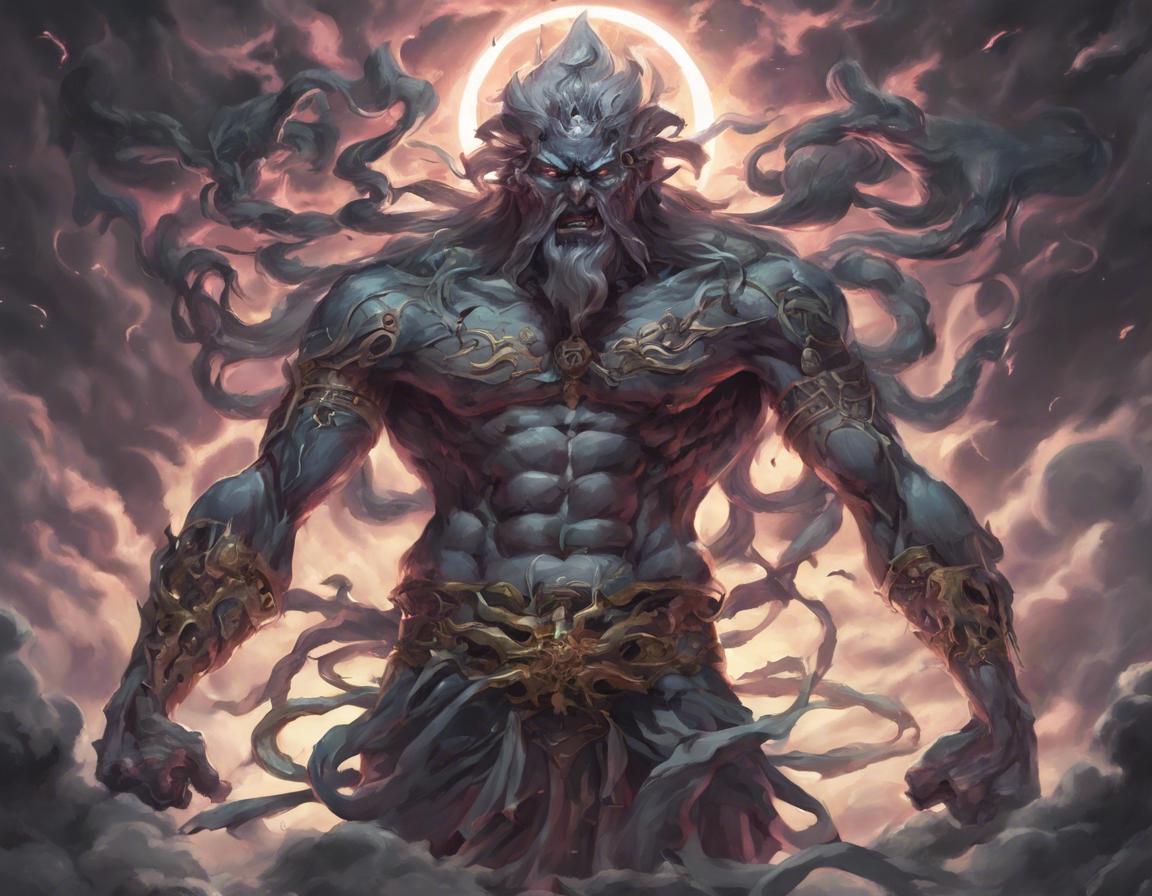Introduction
In the realm of mythology and folklore, tales of gods and demons often capture our imagination with their grandeur and complexity. Among these stories, the concept of a “Suicidal Battle God” stands out as a unique and captivating theme that has been passed down through generations. This narrative typically revolves around a deity or divine being who faces overwhelming challenges or sacrifices themselves to achieve a greater purpose. In this article, we will delve into the symbolism, significance, and variations of the Suicidal Battle God archetype in mythology and its relevance in modern storytelling.
The Mythological Origins of the Suicidal Battle God
The archetype of the Suicidal Battle God can be traced back to various mythological traditions around the world. One of the most well-known examples is the story of Balder from Norse mythology. Balder, the beloved son of Odin and Frigg, was known for his beauty, kindness, and invulnerability. However, his life took a tragic turn when he started experiencing prophetic dreams foretelling his death. Fearing for Balder’s safety, Frigg extracted oaths from all living things promising not to harm her son. Despite her efforts, Loki, the trickster god, discovered a loophole and engineered Balder’s demise using mistletoe. This tale of betrayal, sacrifice, and resurrection exemplifies the classic elements of the Suicidal Battle God motif.
Another prominent example comes from Greek mythology with the tale of Hercules. Driven mad by Hera, Hercules unknowingly killed his wife and children, leading him to seek penance through twelve seemingly impossible labors. These labors, which included slaying mythical beasts and retrieving precious artifacts, were essentially a form of suicidal missions that Hercules undertook to atone for his sins and prove his worthiness as a hero.
Symbolism and Themes
The Suicidal Battle God archetype is rich in symbolism and thematic depth, resonating with universal themes of sacrifice, redemption, and apotheosis. At its core, this archetype embodies the idea of a hero or deity willingly facing death or engaging in seemingly insurmountable battles for the greater good. The act of self-sacrifice is often portrayed as a necessary step in the hero’s journey towards transformation and enlightenment.
Moreover, the theme of rebirth and renewal is a recurring motif in Suicidal Battle God narratives. The death of the hero is not seen as the end but rather as a prelude to a new beginning. Through death and resurrection, the protagonist is reborn stronger, wiser, and more enlightened, symbolizing the cyclical nature of life and the eternal struggle between light and darkness.
Variations in the Suicidal Battle God Archetype
While the core elements of the Suicidal Battle God archetype remain consistent across different mythologies, there are various cultural interpretations and variations of this motif. In Japanese mythology, the tale of Amaterasu, the sun goddess who withdrew into a cave, plunging the world into darkness, can be seen as a form of self-sacrifice to restore balance and order.
In Hindu mythology, the character of Shiva embodies the Suicidal Battle God archetype through his cosmic dance of destruction and creation. Shiva’s destructive aspect, known as Rudra, symbolizes the necessary force of dissolution to pave the way for new growth and transformation.
The Suicidal Battle God in Modern Storytelling
The Suicidal Battle God archetype continues to captivate audiences in modern storytelling, with numerous examples in literature, film, and popular culture. Characters like Harry Potter from J.K. Rowling’s series, who willingly sacrifices himself to defeat Voldemort and protect his friends, embody the essence of the Suicidal Battle God archetype.
In the Marvel Cinematic Universe, Iron Man’s sacrificial act in “Avengers: Endgame” to save humanity from Thanos showcases a modern interpretation of the Suicidal Battle God motif. Iron Man’s ultimate sacrifice highlights the themes of selflessness, courage, and the willingness to lay down one’s life for the greater good.
Conclusion
The archetype of the Suicidal Battle God continues to be a compelling and enduring motif in mythology and storytelling, resonating with audiences through its themes of sacrifice, redemption, and transformation. Whether in ancient myths or contemporary narratives, the journey of the Suicidal Battle God reminds us of the eternal struggle between light and darkness and the profound power of self-sacrifice in shaping destinies and overcoming adversity. As we embrace the timeless wisdom embedded in these tales, we are reminded of the enduring legacy of the Suicidal Battle God and the profound impact of their rebirth stories on our collective consciousness.
Frequently Asked Questions (FAQs)
- What is the significance of the Suicidal Battle God archetype in mythology?
-
The Suicidal Battle God archetype symbolizes themes of sacrifice, redemption, and transformation, highlighting the hero’s journey towards enlightenment through self-sacrifice.
-
How does the Suicidal Battle God motif differ across various mythologies?
-
While the core elements of the Suicidal Battle God archetype remain consistent, different cultures interpret this motif through unique stories and characters that reflect their beliefs and values.
-
What role does rebirth play in Suicidal Battle God narratives?
-
Rebirth is a central theme in Suicidal Battle God stories, symbolizing the hero’s transformation and renewal following death or sacrifice.
-
Can modern characters embody the Suicidal Battle God archetype?
-
Yes, modern storytelling often features characters who exhibit traits of the Suicidal Battle God archetype, such as self-sacrifice, courage, and the willingness to confront overwhelming challenges for the greater good.
-
How does the Suicidal Battle God motif resonate with audiences today?
- The themes of sacrifice, redemption, and heroism depicted in Suicidal Battle God narratives continue to resonate with audiences by highlighting the timeless values of selflessness, courage, and transformation.





